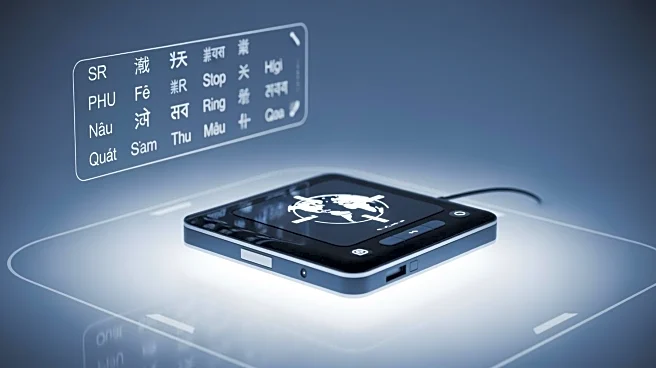What's Happening?
U.S. Army personnel, in collaboration with Angolan service members, have conducted a week-long exchange to test emerging translator technology aimed at bridging language gaps between allied nations. The
exchange involved troops from the U.S. Army Southern European Task Force, Africa, and the Angolan Military Health Division. The focus was on identifying scalable tech capable of real-time language translation in high-stress environments where interpreters may not be available. The technology tested includes a translator app that facilitates smooth conversation through hands-free, auto-translate functions, allowing seamless communication between partners.
Why It's Important?
The successful testing of translator technology represents a significant advancement in military operations, enhancing communication and collaboration between allied forces. This capability is crucial in ensuring effective coordination during joint missions, particularly in regions with diverse languages. The technology's ability to maintain communication flow without interruption could prove vital in life-or-death situations, improving operational efficiency and reducing the risk of misunderstandings. This development highlights the growing importance of technology in overcoming logistical challenges in international military engagements.
What's Next?
Following the successful exchange, the U.S. Army may consider further integration of translator technology into its operations, potentially expanding its use across other regions and missions. Continued testing and refinement of the technology could lead to broader adoption within the military, enhancing communication capabilities in multinational exercises and humanitarian efforts. The technology's impact on military strategy and planning will likely be evaluated, influencing future decisions on resource allocation and training.
Beyond the Headlines
The use of translator technology in military operations raises questions about the balance between human and technological roles in communication. While the technology offers practical solutions, the potential reliance on automated systems may prompt discussions on the importance of human interpreters and cultural understanding in international relations. Ethical considerations regarding the use of technology in sensitive environments may also emerge, influencing policy decisions.










